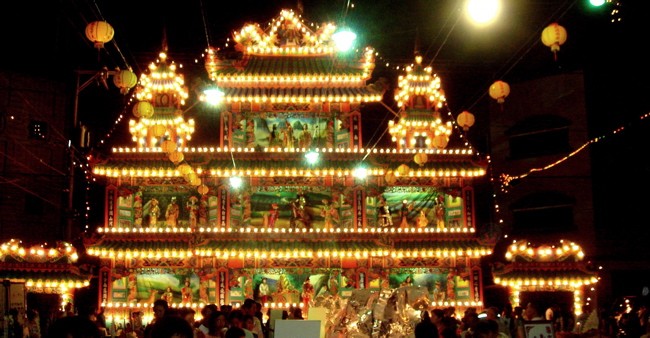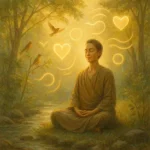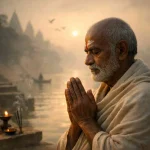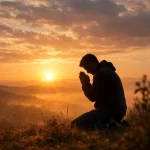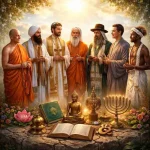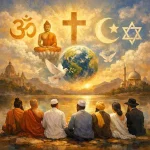Obon is an annual Buddhist festival to commemorate one’s ancestors. It is said that each year during Obon, the ancestors’ spirits return to this world in order to visit their relatives. Obon is observed from the 13th to the 15th day of the 7th month of the year, which is July according to the solar calendar. However, since the 7th month of the year roughly coincides with August rather than July according to the formerly used lunar calendar, Obon is still observed in mid August in many regions of Japan, while it is observed in mid July in other regions.
Obon is a shortened form of Ullambana in Japanese, which in Sanskrit means for “hanging upside down” and implies great suffering.

During this festival of period 3 days, traditionally lanterns are hung in front of houses to guide the ancestors’ spirits during Obon. People gather for Obon dances (bon odori), graves are visited and food offerings are made at house altars and temples. At the end of Obon, floating lanterns are put into rivers, lakes and seas in order to guide the spirits back into their world. The customs followed vary strongly from region to region.
Legend
According to the legend behind the Obon festival, Once there was a Buddhist monk named Mokuren, a disciple of the Buddha. After his mother’s death, he had a vision that her mother’s soul is not in peace and she had fallen into the Realm of Hungry Ghosts and was suffering. The Monk asks his Buddha for guidance to help his mother. Buddha instructs him to make offerings to the Buddhist monks who had just completed their summer retreat, on the fifteenth day of the seventh month and also suggests that the Monk perform good deeds within the community in order to balance his mother’s bad deeds so that her soul could get peace. Mokuren does as per his Buddha’s advice and realizes that his mother’s soul is now at peace due to his good deeds and breaks into a joyful dance of relief, and this is known as the Bon dance.

As Obon occurs in the heat of the summer, participants traditionally wear yukata, or light cotton kimonos. Many Obon celebrations include a huge carnival with rides, games, and summer festival foods. Families sent their ancestor’s spirits back to their permanent dwelling place under the guidance of fire, this rite is known as Okuribi. Fire also marks the commencement Mukaebi as well as the closing of the festival.
Though Obon is predominantly a Japan festival, it is a traditional Buddhist festival to honor the ancestors. The Obon festival is organized as a three day fete in Buddist communities and Temples across the world. It is celebrated with lot of gaiety and fevor in United States, Canada, Korea, China, Brazil, Australia, Malayasia. In fact the Indian Buddhist community too celebrates the Obon.
Read also:

